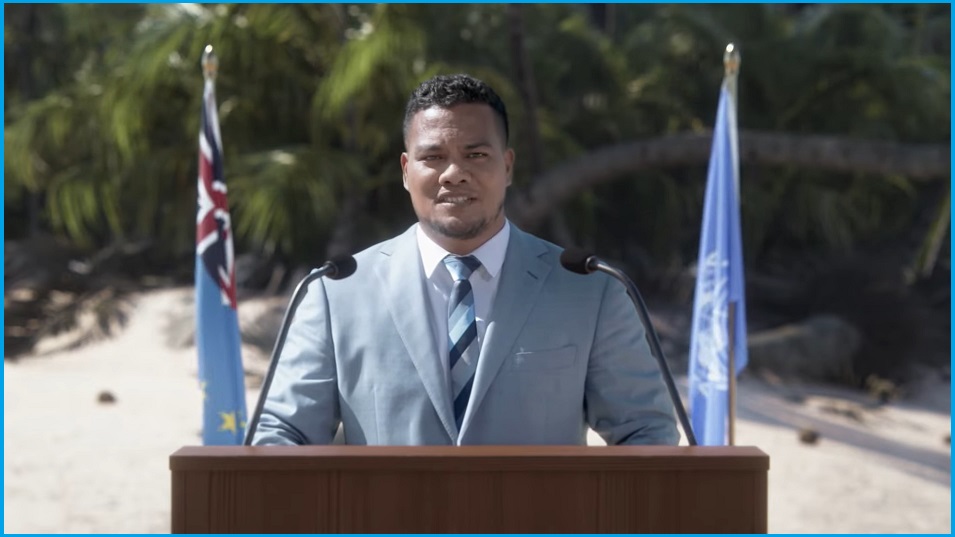The small Pacific nation of Tuvalu has begun a project to preserve digital versions of its islands as rising sea levels threaten to wipe them off the map.
In a speech to the United Nations Climate Change Conference COP 27 held in Egypt this month, Tuvalu’s Minister for Justice, Communications, and Foreign Affairs Simon Kofe described how climate change inaction is an existential threat to his country.
“Our land, our ocean, our culture are the most precious assets of our people – and to keep them safe from harm no matter what happens in the physical world, we’ll move them to the cloud,” Kofe said.
“Islets like this one won’t survive rapid temperature increases, rising sea levels, and drought, so we’ll recreate them virtually.
“Piece by piece we’ll preserve our country, provide solace to our people, and remind our children and our grandchildren what our home once was.”
Tuvalu is a small Commonwealth nation roughly halfway between Australian and Hawaii which comprises three islands and six coral atolls with a total area of just 26 square kilometres.
Its population of around 12,000 people face some of the most immediate effects of climate change.
Kofe delivered his COP 26 speech last year standing knee-deep in water to demonstrate the immediacy of his call to action.
This year’s speech was equally dramatic.
Kofe stood at a dais on an islet, flanked by the Tuvalu and United Nations flags.
Behind him you see sand lit by a hot Pacific sun and trees gently moving with the breeze. As the camera pulls back, you see glitches and computer-generated artefacts. The sand textures pop in from darkness and the sky is revealed to be an empty black void.
The video is symbolic of how the beauty of Tuvalu today will soon only be visible digitally, as images encoded on drives, unless the rest of the world stands up to fight against climate change.
“Our digital nation will provide an online presence that can replace our physical presence and allow us to continue to function as a state,” Kofe said in his speech.
“We have been working on these initiatives for the past year, building our capacity to retain and preserve our nation and the unity of our people even as climate change spirals out of control.”
In a press statement the Tuvalu government said it would be the “first completely digitised nation in the metaverse”.
Last year Tuvalu began its Future Now Project which includes digital archival measures to preserve the country’s history and culture, along with actions to create a fully virtual state that might exist despite the country’s land having gone the way of Atlantis.
“Although Tuvalu stands against relocation as a solution to the climate crisis, in a future scenario that mass migration becomes necessary, digitised government services would ensure that Tuvalu could ostensibly shift to another location and continue to fully function as a sovereign nation,” the Future Now Project reads.
In this worst-case scenario, Tuvalu would also like to make sure it can retain the .tv country domain it licenses out, via intermediaries, to the likes of streaming platform Twitch for a nominal fee.










